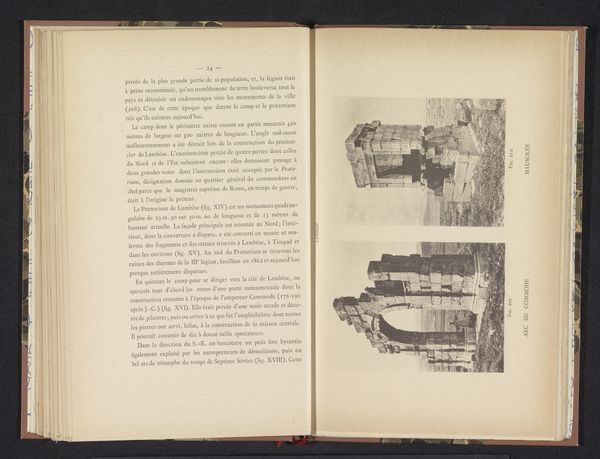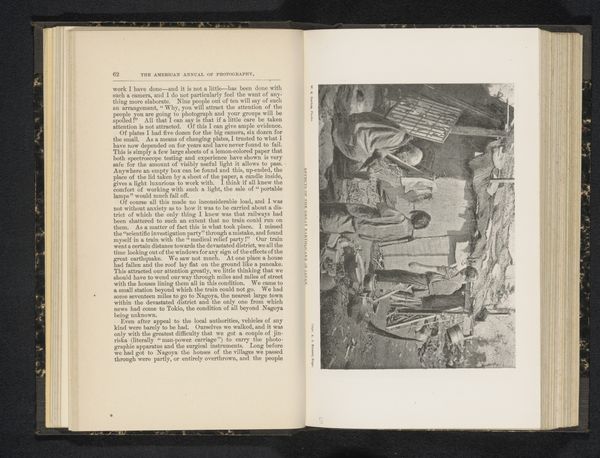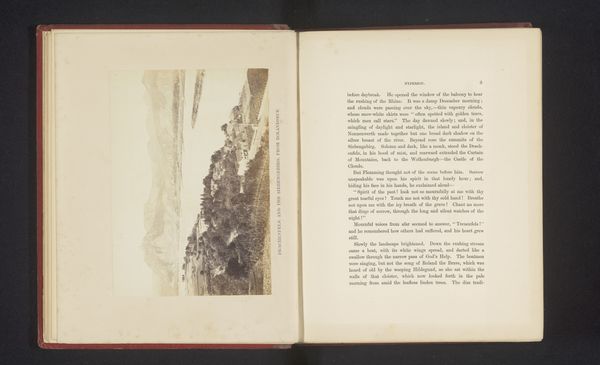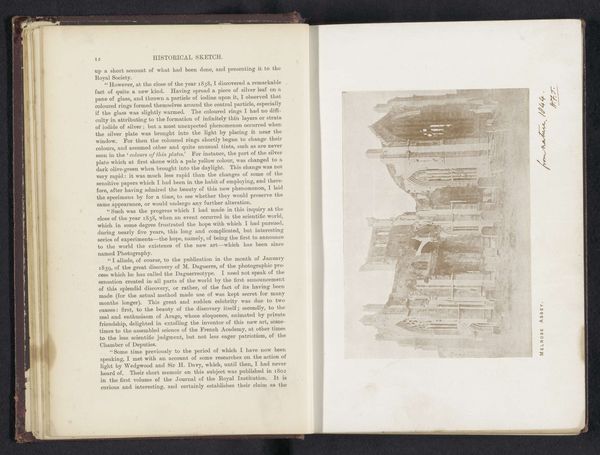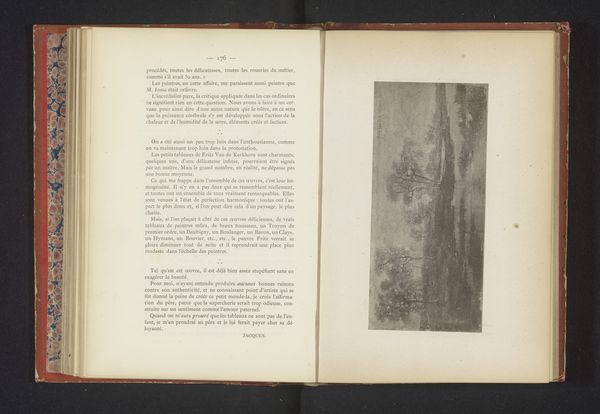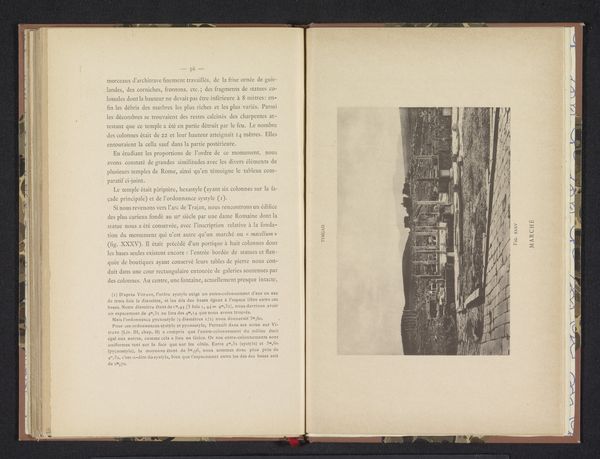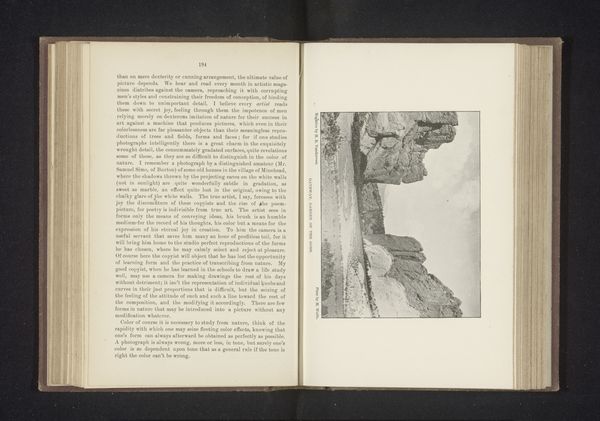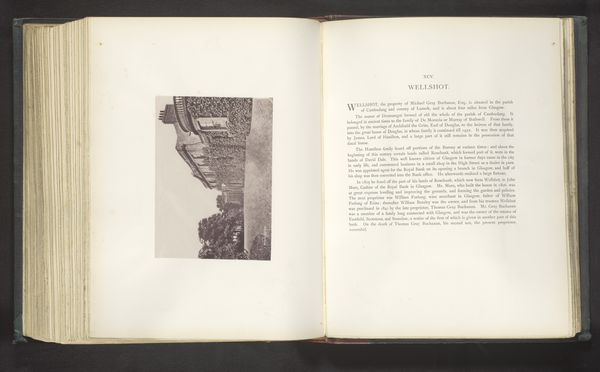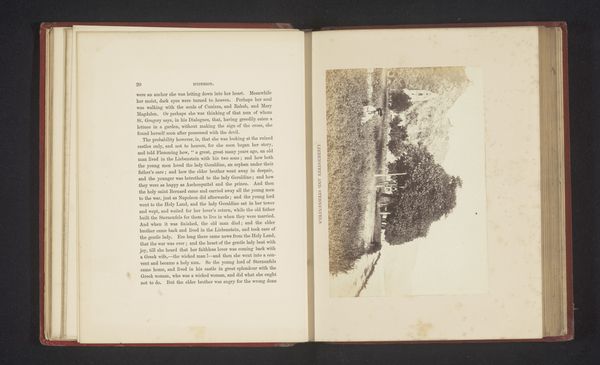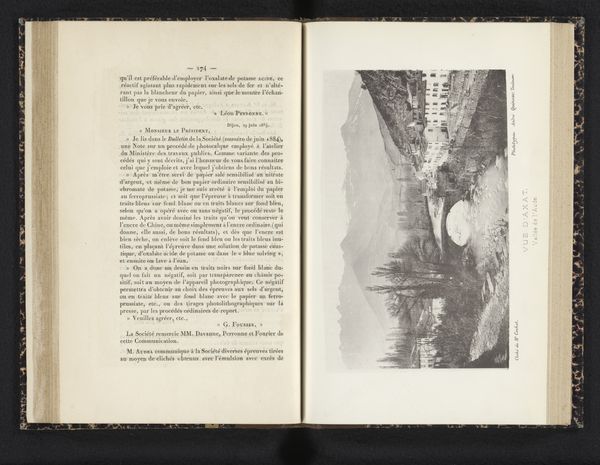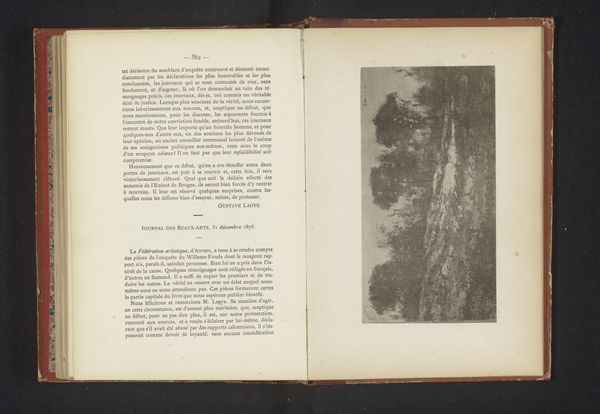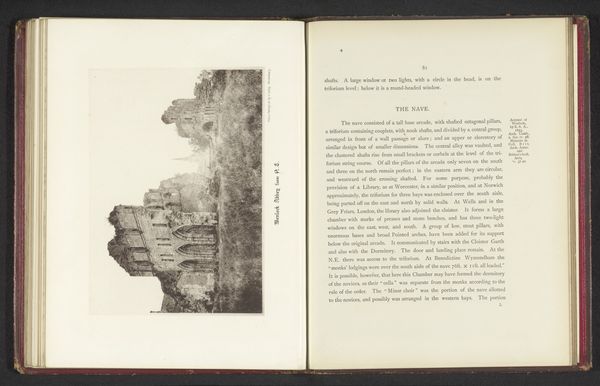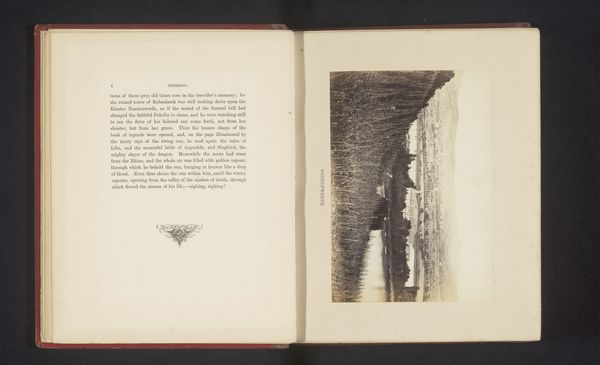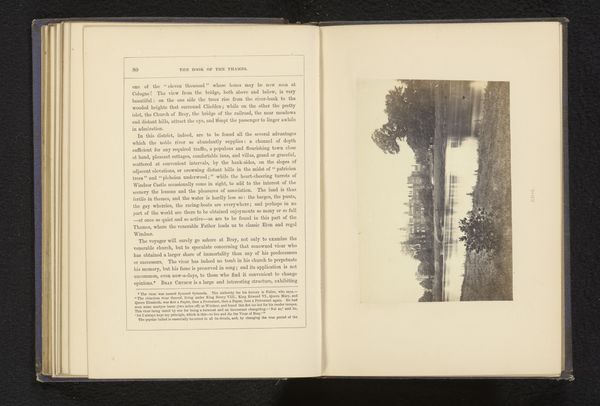
print, photography
# print
#
landscape
#
photography
#
coloured pencil
#
ancient-mediterranean
#
watercolor
Dimensions: height 103 mm, width 155 mm
Copyright: Rijks Museum: Open Domain
This print, depicting the ruins of a Roman monastery-cathedral in Tébessa, North Africa, was created by an anonymous artist. The printmaking process itself is important here. It's likely an etching or engraving, where lines are incised into a metal plate, inked, and then transferred to paper under high pressure. This allowed for the relatively easy reproduction of images, and dissemination of knowledge about distant places and historical sites. Look closely, and you’ll see how the print captures the crumbling texture of the stone, and the play of light and shadow across the ruined architecture. The original building was made with skilled labor, a lot of it. Now look at the print – a similar, though lesser amount of labor goes into the production of the print. Both processes reflect human effort in the transformation of materials. By appreciating the labor and materials involved, we understand that this print is not just a record of a place, but an artifact of its time. It collapses any distinction between art and craft, showing how both are essential to understanding our world.
Comments
No comments
Be the first to comment and join the conversation on the ultimate creative platform.
